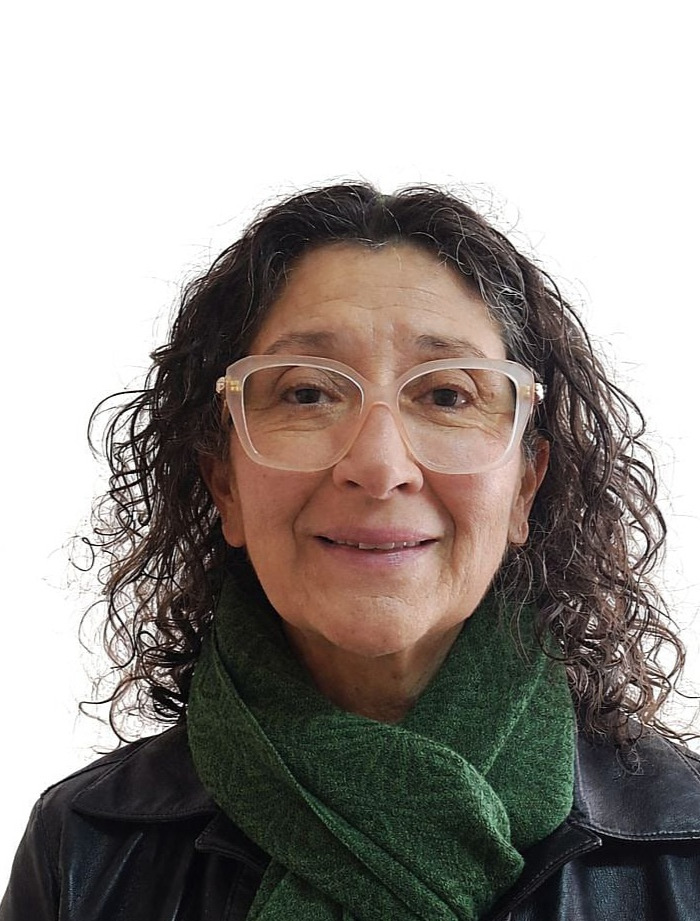#AllWomenWork Women health workers and the challenges they face

PSI World Women's Committee members talk about the challenges in their countries, at home and in the workplace, for women healthcare workers and for all women
- Read this in:
- en

Verónica Montúfar
Irene Khumalo
PSI World Women's Committee Chairperson and Nursing Manager, Irene Khumalo, provides a personal insight into the daily life of a woman, mother and healthcare worker during the current COVID-19 crisis.
Read Irene's full testimony
As part of PSI's campaign, we are collecting testimonies of healthcare women workers and will be looking to present some alternatives for a gender-responsive approach to COVID-19

Irene Khumalo PSI World Women's Chair

Only prayer could save me since as a nurse manager it does not mean I am immune to the COVID-19 infection; everybody knows that it is a highly contagious infection.
Elizabeth Mbo Bikim
Elizabeth, from the Fédération Syndicale des Employés de la Santé, Pharmacies & Assimilés du Cameroun - the Health, Pharmacie and assimilated workers of Cameroun, reports on the difficulties of confinement, with the additional costs this has incurred for many families for food and utilities like water and electricity.
There is a need for additional staff to cope with the increasing number of patients. Working hours have increased for health staff but workers "deplore the compensation in terms of salary"
Elisabeth Mbo Bikim PSI WOC member

There is an increase in the weekly "household basket", given the confinement everyone is at home and daily consumption increases. Including an increase in fixed charges such as water and electricity.
Carolina Espinoza
A social worker in Chile and member CONFUSAM the National Confederation of Municipal Health Employees
Carolina Espinoza, from Chile talks about the main challenges for those working on the front line, the increased workload is a very complex challenge.
Carolina Espinoza CONFUSAM, Chile

Due to the increase in demands we have had to reinvent the way we work; the work overload and high performance expectations have caused considerable stress to workers.
Video
Carolina Espinoza, CONFUSAM Chile
PSI's women's committee in Chile produced this short video for 1st May giving women workers on the front line to talk about their experiences in person in responding to the COVID-19 crisis.
Video
PSI's women's committee in Chile produced this short video for 1st May giving women workers on the front line to talk about their experiences in person in responding to the COVID-19 crisis.
Chile: women on the front line
Shirley Dorismond
Vice-president for FIQ-Santé in Québec (Canada), Shirley talks about the difficulties of juggling family and work responsibilities. More than 4000 health workers had been infected with the virus at the time of the video.
Long-term health facilities, where most patients are elderly women, have become clusters for the virus causing numerous deaths. Health and sexual reproduction clinics remain open but opening hours have been reduced or moved to other services to cover for lack of staff.
“Unfortunately, we will see the collateral damages post-COVID-19. Especially for victims of sexual violence”
Video
Shirly Dorismond, Vice-president for FIQ-Santé in Québec (Canada) and member of PSI's World Women's Committee talks about the difficulties of juggling family and work responsibilities and women workers in the current #COVID-19 crisis.
COVID-19: A testimony from Québec
Argentina
The Greater Buenos Aires Union of Sanitary Works Workers (SGBATOS)has launched a campaign against femicides and sexist violence to help raise awareness among themselves.
"All crimes went down with quarantine minus femicides, which persist." This chilling phrase was said by the Minister for Women, Gender and Diversity Elizabeth Gómez Alcorta last month.
Karina Navone, gender secretary for the union said "We want to make visible how we can act in those cases, how to help these women who we know are suffering from this scourge of violence."
Video
How do you accompany a woman in a situation of gender violence in isolation? AySA and SGBATOS have implemented a policy of inclusion/gender, equal opportunities and treatment and violence in the workplace.